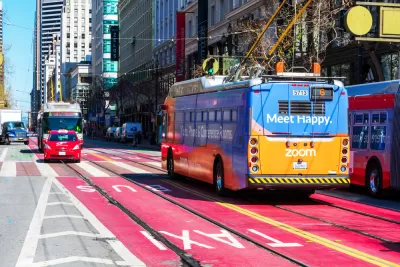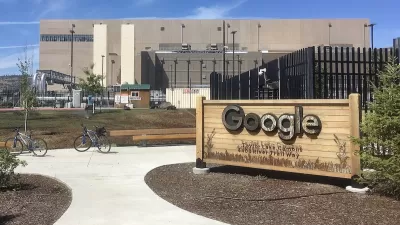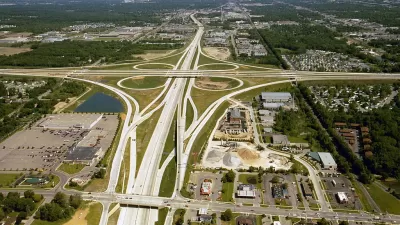A report from the Sabin Center provides a legal framework for municipal-level action on climate change policy.

The Sabin Center for Climate Change Law's Amy E. Turner and Michael Burger provide a legal framework for cities wanting to take action on climate change goals in their local jurisdictions. The document "is meant to highlight potential issues and offer a range of paths forward that cities may consider in pursuing their municipal carbon reduction goals."
Outlining the four sectors that contribute to greenhouse gas emissions––buildings, transportation, energy, and waste––the report explores carbon reduction policies that can be implemented at the municipal level and "cross-cutting legal frameworks that inform many areas of city climate policy, as well as legal concepts that influence how equity may be incorporated into those policy domains."
Potential decarbonization tools in the four sectors include:
- Buildings: building energy benchmarking, energy efficiency retrofits, changes in local building codes, restriction on energy sources.
- Transportation: land use and zoning reform, support of alternative transportation modes, congestion pricing, and investment in electric vehicle infrastructure.
- Energy: investment in renewable energy programs at the household level and the utility scale.
- Waste: recycling and organic waste collection programs, waste management requirements for new buildings, plastic bans, and regulation of waste companies.
The report also includes a chapter on equity, citing the impacts of climate change on BIPOC and low-income communities and the interwoven nature of decarbonization, housing, and jobs policies. While the authors note that all cities have different legal constraints, the framework can serve as an informational tool to guide city leaders towards the most effective decarbonization policies.
FULL STORY: Cities Climate Law: A Legal Framework for Local Action in the U.S.

Alabama: Trump Terminates Settlements for Black Communities Harmed By Raw Sewage
Trump deemed the landmark civil rights agreement “illegal DEI and environmental justice policy.”

Planetizen Federal Action Tracker
A weekly monitor of how Trump’s orders and actions are impacting planners and planning in America.

How Atlanta Built 7,000 Housing Units in 3 Years
The city’s comprehensive, neighborhood-focused housing strategy focuses on identifying properties and land that can be repurposed for housing and encouraging development in underserved neighborhoods.

In Both Crashes and Crime, Public Transportation is Far Safer than Driving
Contrary to popular assumptions, public transportation has far lower crash and crime rates than automobile travel. For safer communities, improve and encourage transit travel.

Report: Zoning Reforms Should Complement Nashville’s Ambitious Transit Plan
Without reform, restrictive zoning codes will limit the impact of the city’s planned transit expansion and could exclude some of the residents who depend on transit the most.

Judge Orders Release of Frozen IRA, IIJA Funding
The decision is a victory for environmental groups who charged that freezing funds for critical infrastructure and disaster response programs caused “real and irreparable harm” to communities.
Urban Design for Planners 1: Software Tools
This six-course series explores essential urban design concepts using open source software and equips planners with the tools they need to participate fully in the urban design process.
Planning for Universal Design
Learn the tools for implementing Universal Design in planning regulations.
Caltrans
Smith Gee Studio
Institute for Housing and Urban Development Studies (IHS)
City of Grandview
Harvard GSD Executive Education
Toledo-Lucas County Plan Commissions
Salt Lake City
NYU Wagner Graduate School of Public Service





























